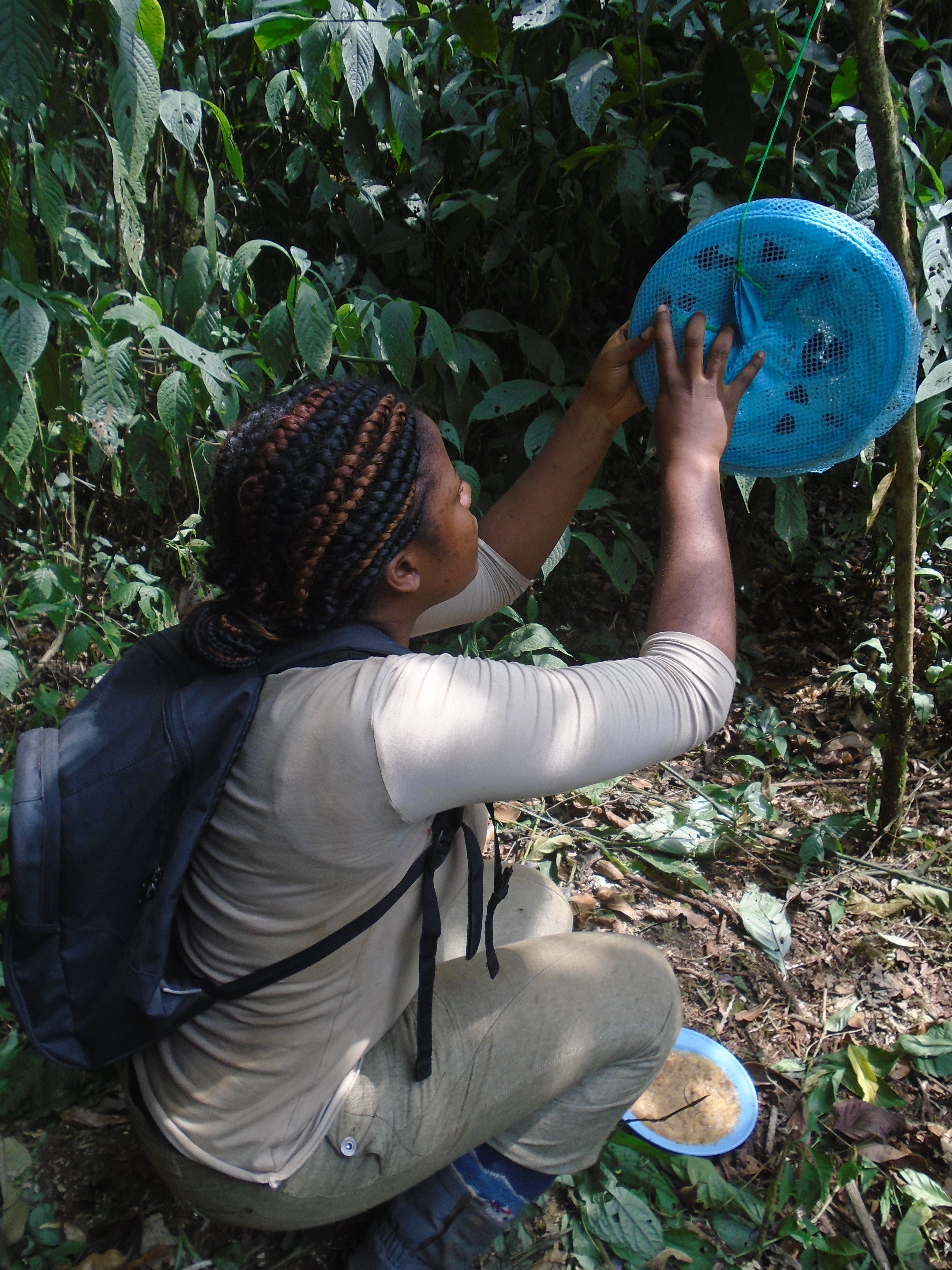
The ecology of butterflies on the mountain
Mount Cameroon, the highest peak in central Africa, harbors an incredible wealth of biodiversity. But the one creature visitors are guaranteed to see are butterflies. Richly hued, iridescent, basking in ever-shifting spots of sun or feeding on fruit. Butterflies are ubiquitous on the Mount Cameroon, and they serve important ecological roles, such as pollinating native plant species. Yet they remain little-studied in mountain areas; a lack of understanding which hinders the ability to conserve butterflies.
Mercy Murkwe, a 2015 CARN awardee, collected more than 9,600 butterflies – representing 132 different species – along altitudinal gradients of Mount Cameroon to explore the diversity of fruit-feeding butterflies on the mountain, and to assess how butterfly communities changed along altitudinal gradients.
Her work led to discoveries of important spatial and temporal patterns in butterfly species richness. Murkwe also identified specific climatic factors, such as temperature and precipitation, that influenced these patterns. Her work has which can serve as baseline information for comparing species diversity and community structure among other tropical forests. In 2017 Murkwe spent time as an exchange student at Charles University in Prague; her field work in Mount Cameroon National Park with her Czech Republic collaborators led to the discovery of 19 moth species – previously unrecorded in Cameroon – plus the first-ever records of two moth genera in the country. That research was published in Entomological News.
Murkwe is now a PhD student studying zoology at the University of Buea; she credits her CARN research as the reason she was able to enroll in the PhD program. She continues to analyze her CARN research. “We are trying to further investigate the relationship between other environmental parameters affecting the population of fruit-feeding butterflies,” she says.
She credits the CARN grant with helping build her interpersonal and communication skills, while teaching her how to manage a team. “This has helped me to easily integrate among people, projects and conferences, both at home and abroad.” Murkwe hopes to continue studying biodiversity, especially in butterflies and moths. We are living in a world where “human activities and climate change are becoming an increasing threat to biodiversity as a whole,” she says. “My career goal is to act as an expert in identifying various ways by which species diversity could be affected by these factors.”
Published on